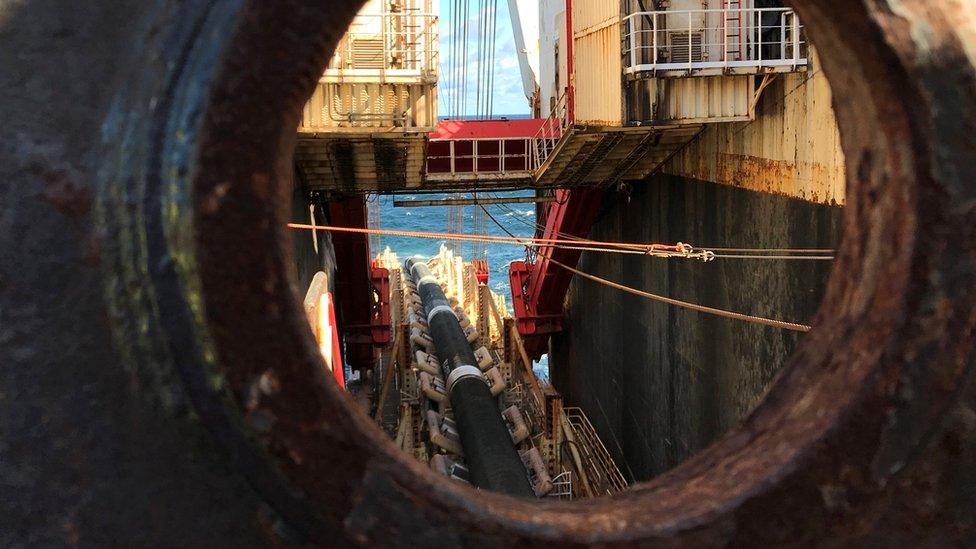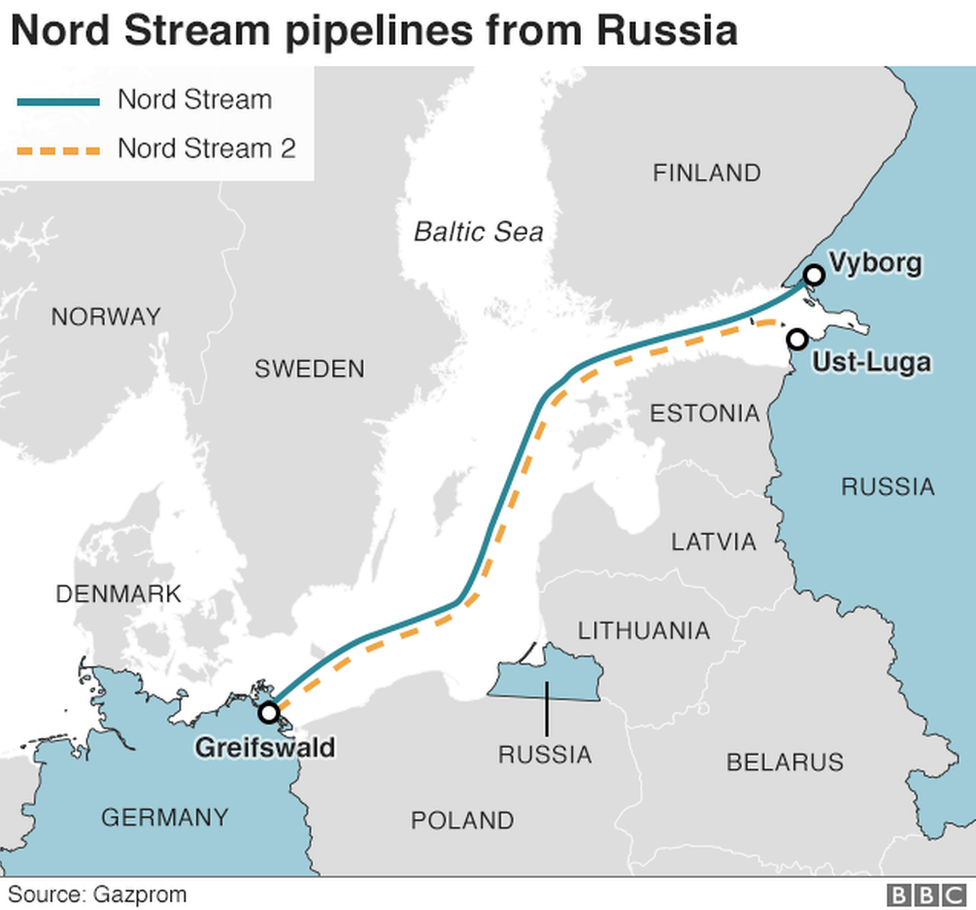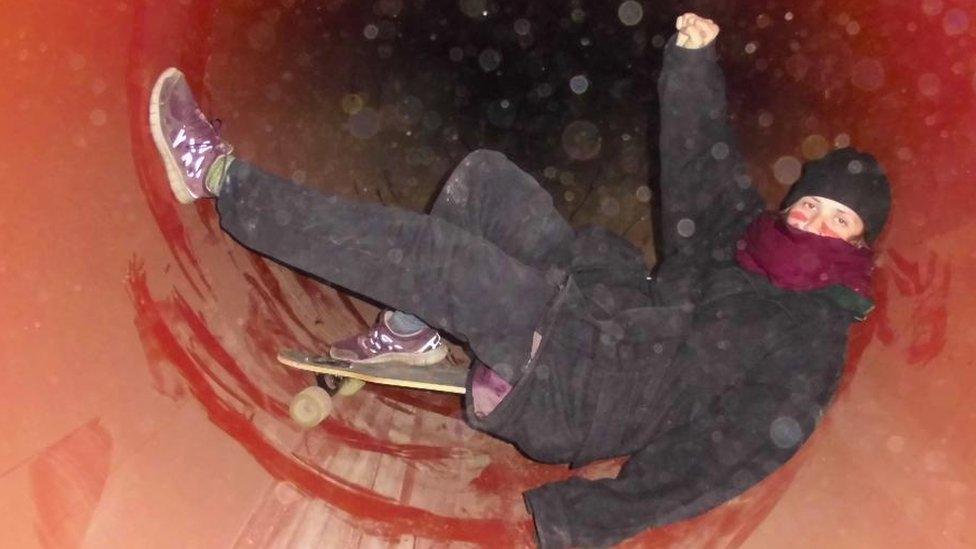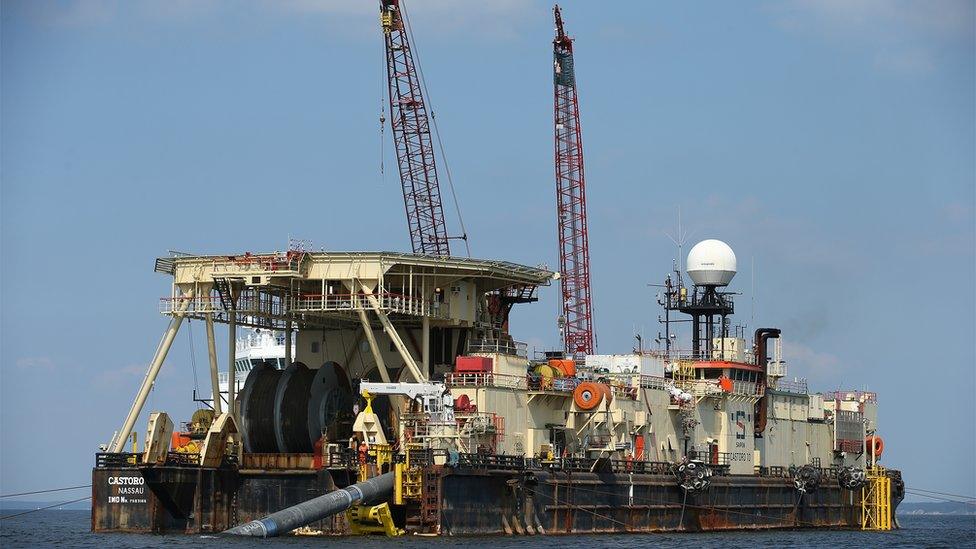Nord Stream 2: Go-ahead for Russian gas pipeline angers Ukraine
- Published

The Nord Stream 2 pipeline in the Baltic Sea has divided Europe and infuriated the US
Denmark's approval for a controversial pipeline to pump more Russian gas into Europe will strengthen Russia's influence in the region, Ukraine warns.
"This is not only a matter of energy security, it is a geopolitical issue," Ukraine's President Volodymyr Zelensky said of the Nord Stream 2 gas project.
Plans for the 1,225km (760-mile) undersea pipeline have divided Europe.
The Danish permit was the last major hurdle. The pipeline will run under the Baltic Sea from Russia to Germany.
The Russian-led Nord Stream 2 project has also infuriated the US, which fears the pipeline will tighten Russia's grip over the region's energy supply and reduce its own share of the lucrative European market for American liquefied natural gas.
US President Donald Trump has said the pipeline, owned by Russia's Gazprom, could turn Germany into a "hostage of Russia".
On Wednesday, Denmark said it had granted a permit for part of the Nord Stream 2 pipeline to be constructed near the Baltic island of Bornholm.
Denmark's Energy Agency said it was "obliged to allow the construction of transit pipelines" under the UN Convention on the Law of the Sea.
It will take a month for the permit to come into effect, the agency added.
Russian President Vladimir Putin welcomed the news, saying the decision was good for Europe.
Gas wars: The problem with Nord Stream 2
But Mr Zelensky said the move "strengthens Russia and weakens Europe".
"We understood that this could happen," he said at press conference in the Ukrainian capital Kyiv, adding: "For my part, I will say that both me and our government were ready for such a decision. We are ready."
Nord Stream 2 will not only increase Russia's supply of gas to the region, it also means that, along with its TurkStream project, Russia will be able to bypass Ukrainian pipelines.
The loss of transit fees would hit Ukraine's economy hard - in 2017, the country earned about $3bn (€2.7bn; £2.3bn) in Russian gas transit fees.
Why is Nord Stream 2 so controversial?
For years EU member states have been concerned about the bloc's reliance on Russian gas.
Russia currently supplies about 40% of the EU's gas supplies - just ahead of Norway, which is not in the EU but takes part in its single market. The new pipeline will increase the amount of gas going under the Baltic to 55 billion cubic metres per year.
Disagreements among EU nations were so strong that, earlier this year, they even threatened to derail the project entirely.


The bloc eventually agreed to strengthen regulations against Nord Stream 2, rather than stop it completely, and to bring it under European control.
Businesses in Germany, meanwhile, have invested heavily in the project. Chancellor Angela Merkel has tried to assure Central and Eastern European states that the pipeline would not make Germany reliant on Russia for energy.
Leaders in the US are also concerned. In May, a group of senators introduced legislation seeking sanctions against the pipeline.
That same month, climate activists opposing the use of fossil fuels occupied part of the Nord Stream 2 gas pipeline in Germany.
The demonstrators, who said the project would be more detrimental to the environment than the authorities had claimed, began skateboarding inside the pipes.
Police said at least five people had occupied the pipes near Wrangelsburg in northern Germany.
- Published16 May 2019

- Published8 February 2019
